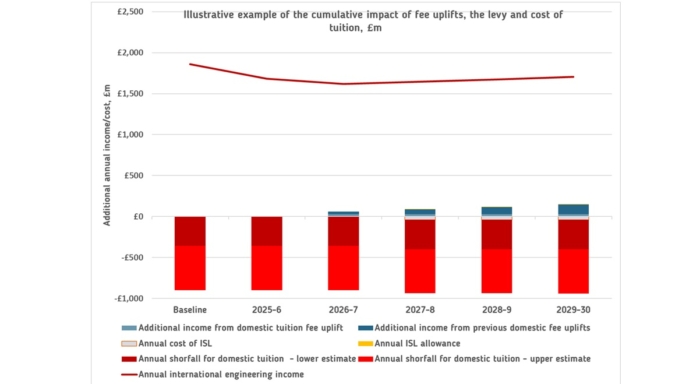The EPC Research, Innovation and Knowledge Transfer Committee has responded to the Science, Innovation and Technology Select Committee inquiry into “Innovation, growth and the regions”.
The role of the UK’s innovation ecosystem in achieving the Government’s mission to kickstart economic growth across the country is dependant upon Engineering higher education (HE). We outlined how universities and businesses work together to commercialise research and to tackle obstacles such as funding and market access. We also considered the role of structural factors—such as the tax system, regulatory requirements, and standards—in influencing the success of start-ups, spin-outs, and other innovation-focused enterprises. Finally, the link between innovation and economic growth both regionally and nationally, highlighted lessons from international comparators and considered the impact of regional clusters and hubs, including the Catapult network.
Universities play a pivotal role in a healthy and thriving innovation ecosystem. They are essential for a successful transition of research into industry and for regional growth and economic development. The role of universities as drivers for growth is well documented. Many universities are place-based anchor institutions, critical to the sustainability and growth of their whole region. While significant investments have been made in research and development (R&D), there are more opportunities to enhance these efforts further, ensuring that they are more inclusive and supportive of regional diversity.
The EPC has identified a number of challenges that are limiting regional development:
- Balancing investment between established excellence and supporting growth: Finding the right balance between funding world-leading established centres of excellence and investing in regional and local R&D new entities. The UK education system is in an excellent channel to deliver growth, providing world class graduates with a long-standing track record. However, regional development requires engagement with local stakeholders, understanding of regional priorities, and aligning resources with local economic development goals. Effective local leadership and collaboration with national government initiatives is critical in ensuring that region-specific policies contribute to both local prosperity and national economic growth.
- Uneven regional distribution: While the UK has an excellent start-up ecosystem that ensures a smooth transfer of research results into the commercial world, its geographical spread is concentrated in the South-East and a few large urban areas. More tailored regional strategies could further support local innovation ecosystems and the current devolution plans offer promise in this area. Engineering, which is less prone to gravitating towards urban and financial hubs than certain other sectors, offers particular opportunities for creating regional growth through anchoring activities in higher education institutions.
- Attracting and retaining local and global talent: The skills deficit in STEM disciplines is significant and has been well established by many studies. The long tradition and strong reputation of British universities all translate into a significant ability to attract top talent from all over the world, especially in critical areas such as engineering. This is essential for a thriving and competitive R&D ecosystem and should be accompanied by the right ways to make maximum use of that talent in all research areas. However, growing local talent is essential, so mechanisms, such as the Degree Apprenticeship scheme, are ideal for addressing demand at a larger scale.
- An insufficiently modernised engineering curriculum: The skills deficit isn’t only quantitative – a skills ‘shortage’ where we need more engineers, data scientists or project managers, but also qualitative – a skills ‘gap’ where employees have the capacity to explore, innovate, prototype, test and scale up at an order of magnitude higher speed. Most British universities have been actively reappraising and refocusing their Engineering education for some time and many are progressing well in this process. However, there still is a long way to go for the sector. The engineering professional associations, Engineering Council and the Royal Academy of Engineering are playing a key role in this process.
- Limited collaboration between universities, business and local government: Even where such collaboration exists, there are many missed opportunities especially in using and combining funding coming from various sources (e.g. UKRI, central and local government, Innovate UK, private) to boost innovation and R&D.
You can read the full response here.




